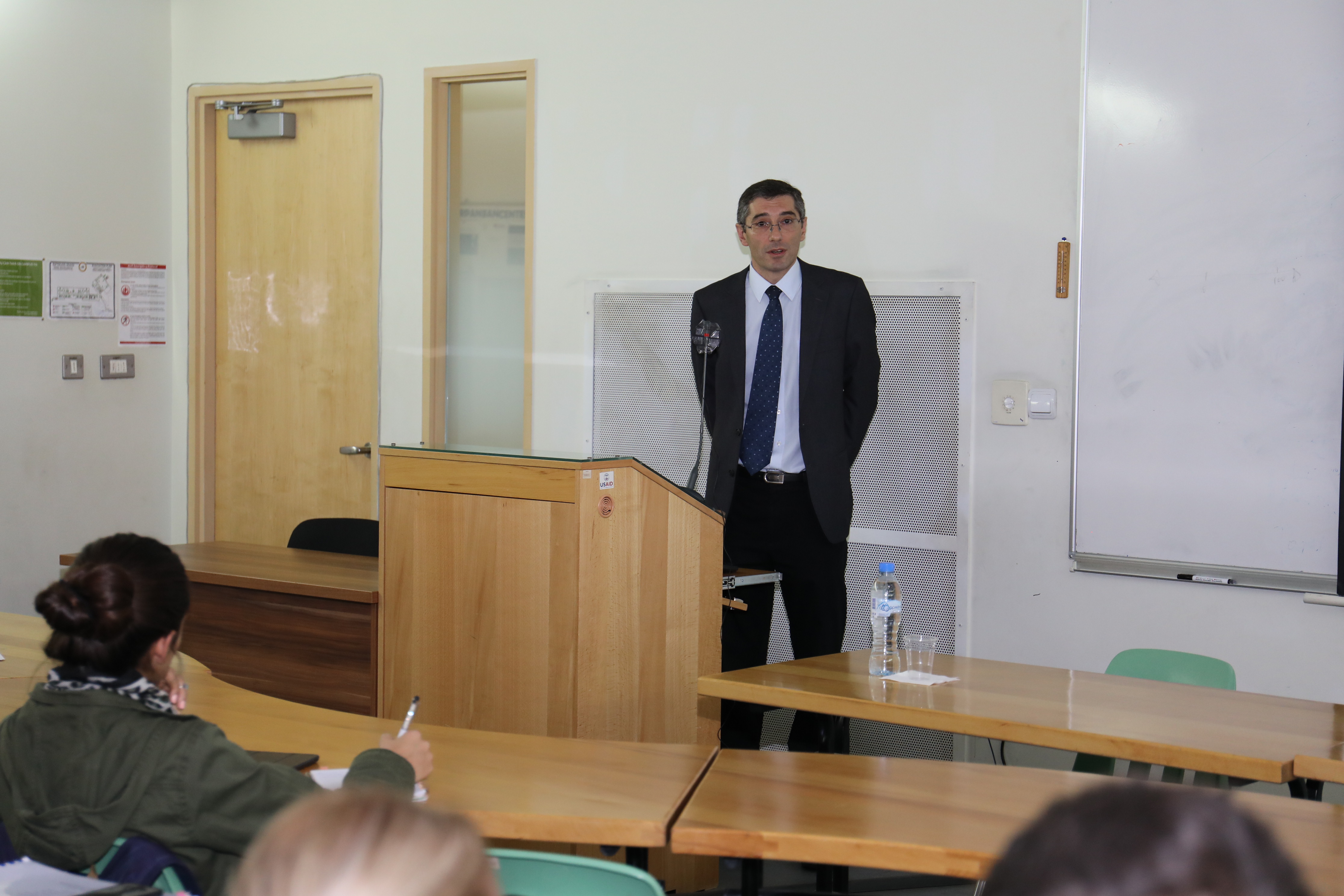
Hierarchy in International Relations: Regional Specifics and the Post-Soviet Space
2 min read YEREVAN, Armenia – On October 11, 2017, the American University of Armenia (AUA) Political Science and International Affairs (PSIA) program held a debate on ‘Hierarchy in International Relations: Regional Specifics and the Post-Soviet Space.’ The topic was presented by Vahagn Aglyan, the Chair of Public Administration of the Department of International Relations at Yerevan State University. The event was part of a series of PSIA seminars that are held every Wednesday at 4:30 pm.
YEREVAN, Armenia – On October 11, 2017, the American University of Armenia (AUA) Political Science and International Affairs (PSIA) program held a debate on ‘Hierarchy in International Relations: Regional Specifics and the Post-Soviet Space.’ The topic was presented by Vahagn Aglyan, the Chair of Public Administration of the Department of International Relations at Yerevan State University. The event was part of a series of PSIA seminars that are held every Wednesday at 4:30 pm.
International relations (IR) is considered a complicated phenomenon which has been addressed by different theories in an attempt to get a comprehensive understanding of the international system. Aglyan opened his presentation by introducing the international relations theory and explaining how the main theories of IR are interrelated with the notion of hierarchy. The neorealist approach claims that all the systems can be anarchic or hierarchic. Furthermore, neoliberal theorists argue that effects of international anarchy could potentially be mitigated through the variety of institutionalized liberal practices and frameworks of cooperation. Lastly, the constructivist approach claims that ‘international anarchy is what states make of it.’
Aglyan went on to explain that in the international system, power is unevenly distributed among the states. Some states have the power to become hegemonies, and act accordingly. If we look at the relations between states through theoretical lenses, the basic assumption is that hierarchy and anarchy are on the opposite sides. Furthermore, Aglyan stated that hierarchy in the IR system is based on mutual help and protection and bandwagoning with the powerful actors, which involves a bargaining element. It can be explained in terms of protectorate and sphere of influence. Smaller states form alliances to balance against the powerful states, while in an anarchic structure of the world, states act according to the self-help principle.
Founded in 1991, the American University of Armenia (AUA) is a private, independent university located in Yerevan, Armenia and affiliated with the University of California. AUA provides a global education in Armenia and the region, offering high-quality, graduate and undergraduate studies, encouraging civic engagement, and promoting public service and democratic values.










